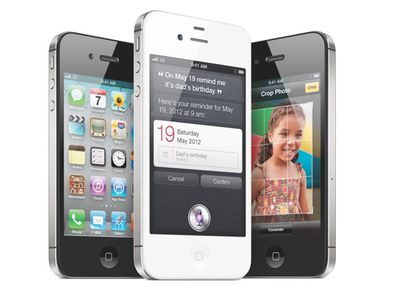Class Action Lawsuit Accuses Apple of Crippling iPhone 4s With iOS 9 Update
Apple today was hit with a class action lawsuit seeking over $5 million in damages for deceptive trade practices and false advertising, as noted by AppleInsider). Plaintiff Chaim Lerman says he and other iPhone 4s owners became unable to use their devices after upgrading to iOS 9 as the update "significantly slowed down" their iPhones and "interfered with the normal usage of the device."
According to the lawsuit, the plaintiffs were forced to either live with a "slow and buggy" device that "disrupts every day life" or shell out hundreds of dollars for a new iPhone.

When iPhone 4s owners are faced with the dilemma of continuing to use a slow, buggy phone or spend hundreds to buy a new phone, Apple often benefits because consumers will often buy a new iPhone to keep their investment in the App ecosystem. [...]
Furthermore, iPhone owners will buy a newer iPhone when faced with the choice because it is familiar and they can easily transfer their information, media, contacts, and apps without a major disruption in usage. There is no learning curve and no delays and trouble that accompany new information input. Thus Apple stands to benefit financially when older iPhones are slowed down and owners are forced to purchase a new phone.
The plaintiffs argue that Apple failed to properly warn iPhone 4s users that the update would "significantly interfere" with the performance of their phones. When Lerman and other plaintiffs upgraded their devices, they noticed a significant drop in performance in both third-party apps and basic functions like using the Phone app. Because Apple does not allow iPhone users to easily downgrade their devices to a previous iOS version, the plaintiffs feel they're forced into either using a slower phone or purchasing a new one.
Apple's advertising, the plaintiffs allege, does not mention the potential of slowed performance for iPhone 4s users, instead focusing on performance improvements. The lawsuit points towards Apple's iOS 9 website, which says the update brings "faster performance, improved security, convenient updates, and longer battery life." The plaintiffs argue that Apple must have known about the iPhone 4s' slower performance from internal testing or other means and did not warn users about potential headaches in their advertising.
This isn't the first time Apple has been accused of planned obsolescence, as the company was hit with a lawsuit in 2011 regarding the iPhone 3G and iOS 4. That case was thrown out by the judge who ruled the iOS 4 update was not a "good or service" and dismissed claims of false advertising and deceptive business practices.
Popular Stories
The long wait for an Apple Watch Ultra 3 appears to be nearly over, and it is rumored to feature both satellite connectivity and 5G support.
Apple Watch Ultra's existing Night Mode
In his latest Power On newsletter, Bloomberg's Mark Gurman said that the Apple Watch Ultra 3 is on track to launch this year with "significant" new features, including satellite connectivity, which would let you...
Apple's next-generation iPhone 17 Pro and iPhone 17 Pro Max are just over two months away, and there are plenty of rumors about the devices.
Below, we recap key changes rumored for the iPhone 17 Pro models.
Latest Rumors
These rumors surfaced in June and July:Apple logo repositioned: Apple's logo may have a lower position on the back of the iPhone 17 Pro models, compared to previous...
The iPhone 17 Pro Max will feature the biggest ever battery in an iPhone, according to the Weibo leaker known as "Instant Digital."
In a new post, the leaker listed the battery capacities of the iPhone 11 Pro Max through to the iPhone 16 Pro Max, and added that the iPhone 17 Pro Max will feature a battery capacity of 5,000mAh:
iPhone 11 Pro Max: 3,969mAh
iPhone 12 Pro Max: 3,687mAh...
The upcoming iPhone 17 Pro and iPhone 17 Pro Max are rumored to have a slightly different MagSafe magnet layout compared to existing iPhone models, and a leaked photo has offered a closer look at the supposed new design.
The leaker Majin Bu today shared a photo of alleged MagSafe magnet arrays for third-party iPhone 17 Pro cases. On existing iPhone models with MagSafe, the magnets form a...
Apple's position as the dominant force in the global true wireless stereo (TWS) earbud market is expected to continue through 2025, according to Counterpoint Research.
The forecast outlines a 3% year-over-year increase in global TWS unit shipments for 2025, signaling a transition from rapid growth to a more mature phase for the category. While Apple is set to remain the leading brand by...
iOS 26 and iPadOS 26 add a smaller yet useful Wi-Fi feature to iPhones and iPads.
As spotted by Creative Strategies analyst Max Weinbach, sign-in details for captive Wi-Fi networks are now synced across iPhones and iPads running iOS 26 and iPadOS 26. For example, while Weinbach was staying at a Hilton hotel, his iPhone prompted him to fill in Wi-Fi details from his iPad that was already...
Apple today seeded the second betas of upcoming iOS 18.6 and iPadOS 18.6 updates to public beta testers, with the betas coming just a day after Apple provided the betas to developers. Apple has also released a second beta of macOS Sequoia 15.6.
Testers who have signed up for beta updates through Apple's beta site can download iOS 18.6 and iPadOS 18.6 from the Settings app on a compatible...




















